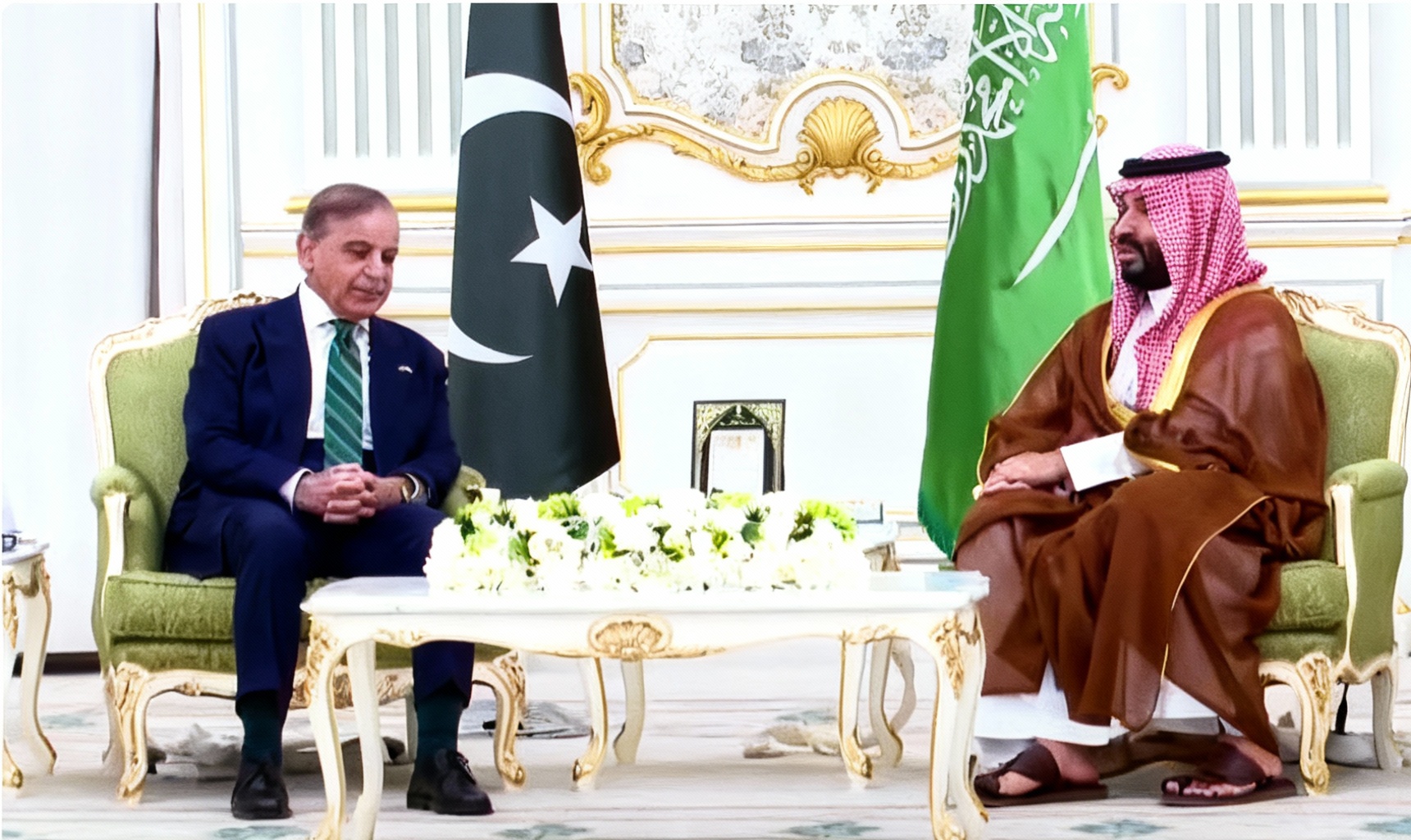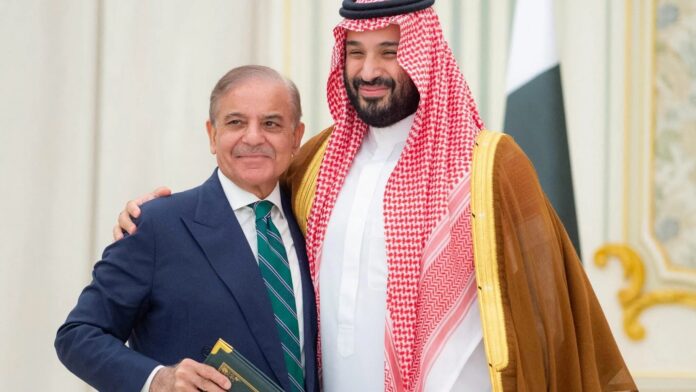A New Chapter in Saudi-Pakistan Security Cooperation
In a landmark move that could reshape the security architecture of the Middle East and South Asia, Saudi Arabia and Pakistan have signed a comprehensive Mutual Defense Agreement. The pact commits both nations to treat any act of aggression against one as an attack on both — effectively creating a joint security shield at a time of rising geopolitical uncertainty.
The agreement was signed on Wednesday in Riyadh during the official visit of Pakistani Prime Minister Shehbaz Sharif, who met with Saudi Crown Prince Mohammed bin Salman. The deal formalizes decades of informal security collaboration between the two countries and elevates it to a binding strategic partnership.
Key Details of the Defense Pact

According to a joint statement, the accord “underscores the shared commitment of Riyadh and Islamabad to maintaining security, peace, and stability in the region and beyond.” Pakistan’s Ministry of Foreign Affairs stressed that “any aggression against either country will be regarded as aggression against both.”
The agreement reportedly covers military cooperation, intelligence sharing, and joint training programs, with particular emphasis on counterterrorism and defense technology. Analysts note that the pact could also provide Saudi Arabia with a closer association with Pakistan’s advanced military capabilities, including its nuclear deterrent — a long-speculated dimension of the partnership.
Geopolitical Context: Israel’s Strike on Qatar

The timing of the agreement comes just weeks after a high-profile Israeli airstrike in Doha that killed several Hamas leaders and a Qatari security officer. The strike, which reportedly took place while ceasefire negotiations were underway, sent shockwaves across Gulf capitals. Many analysts view the Saudi-Pakistani accord as part of a wider regional effort to bolster security arrangements independent of Washington’s fluctuating commitments.
A senior Saudi official told Reuters that the pact was the product of “years of discussions” rather than a direct response to the Doha incident, but acknowledged its sweeping scope, describing it as “a comprehensive defensive agreement that encompasses all military means.”
Implications for Regional Security
The deal comes at a sensitive time for South Asia. India and Pakistan recently emerged from a four-day military confrontation in May 2025 following a deadly attack in Indian-administered Kashmir that left 26 civilians dead. The skirmish involved missile and drone exchanges before a ceasefire was brokered through U.S. mediation.
New Delhi has responded cautiously to the Saudi-Pakistan pact. India’s Ministry of External Affairs stated it would “carefully study the implications” while reiterating its commitment to safeguarding national interests. Experts suggest the agreement may complicate India’s growing economic and energy ties with Riyadh, which have expanded in recent years.
Strengthening Strategic Ties
For Pakistan, this defense pact represents one of its most significant international security agreements in decades. It reaffirms Islamabad’s close relationship with Riyadh at a time when Pakistan is seeking to stabilize its economy and assert its relevance in global geopolitics.
For Saudi Arabia, the agreement strengthens its security posture as it navigates an increasingly volatile regional landscape — from the war in Yemen to rising concerns about Iranian influence and questions over future U.S. military engagement in the Gulf.
Expert Reactions
Security analysts have described the accord as a “game changer” for regional defense cooperation. By formally aligning with Pakistan, Saudi Arabia gains access to one of the largest standing armies in the Muslim world and potentially benefits from Pakistan’s nuclear deterrence.
Dr. Ayesha Siddiqa, a defense analyst, noted that the pact “institutionalizes Pakistan’s long-standing but informal role in Gulf security and signals a shift toward more self-reliant regional defense frameworks.”
Looking Ahead
The signing of this agreement could mark the beginning of deeper military integration between the two countries, potentially including joint exercises, shared defense infrastructure, and coordinated responses to regional threats. Observers will be watching closely to see how this development affects Saudi Arabia’s relations with India, Iran, and the United States.
With growing uncertainty in global power dynamics, the Saudi-Pakistan mutual defense pact highlights a broader trend: traditional U.S. allies in the Middle East are increasingly seeking diversified security partnerships.
Sources: CNN

